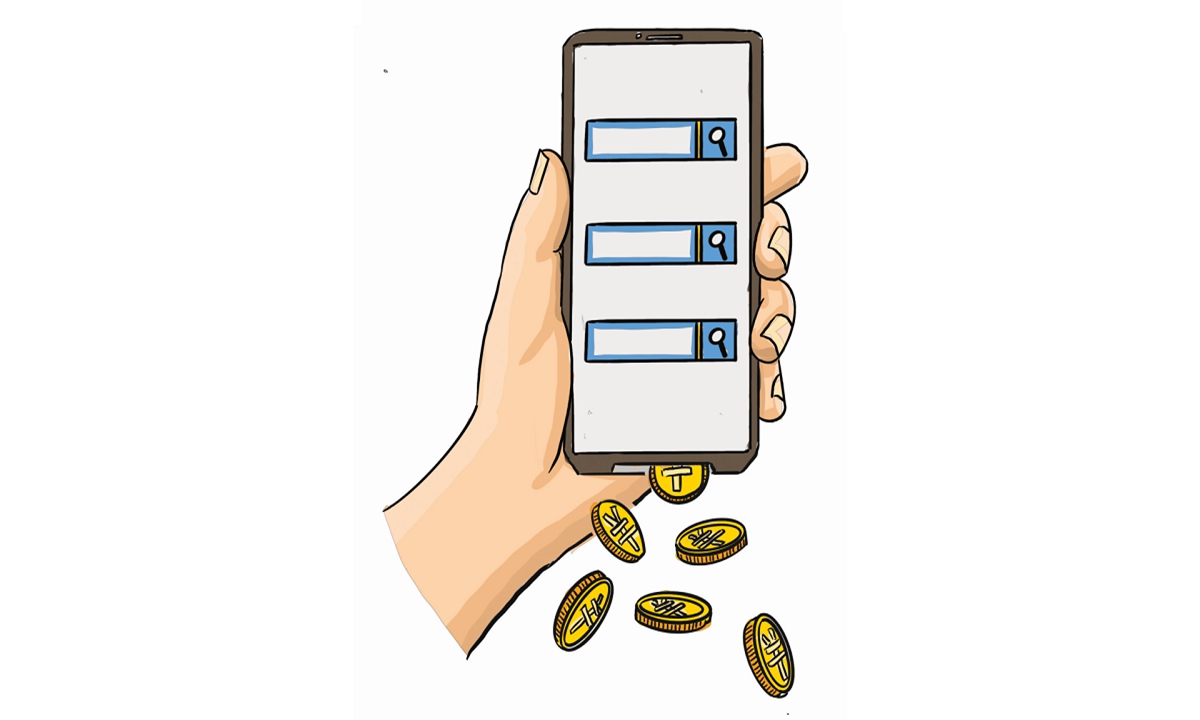Learning Chinese
Source: Global Times Published: 2020/9/28 20:13:40
Chat attack
take advantage of (a frequent customer) / "杀熟"/ (shāshú)
A: The October 1 holiday is about to begin, are the bookings for places you will go have fun all ready yet?
"十一"小长假即将开始,你出去玩的预定都好了吧?
(shíyī xiǎochánɡjiǎ jíjiānɡ kāishǐ, nǐchūqùwánde yùdìnɡ dōuhǎoleba?)
B: The necessary reservations are ready. But I am still worried that some online businesses will abuse big data analysis and other technical means to take advantage of me.
必要的预定都好了。可我还是担心有些在线商家滥用大数据分析等技术手段"杀熟"。
(bìyàode yùdìnɡ dōuhǎole. kěwǒ háishìdānxīn yǒuxiē zàixiàn shānɡjiā lànyònɡ dàshùjù fēnxīděnɡjìshùshǒuduàn shāshú.)
A: Starting from October 1, new policies and regulations will be implemented, expressly prohibiting the online travel industry from using big data to take advantage of customers. In the future, consumers will have a legal basis for when they encounter such situations.
10月1日起,有新的政策法规要开始施行,明令禁止在线旅游行业利用大数据"杀熟"行为。今后消费者再遇到类似的情况,就有法律依据了。
(shíyuèyīrìqǐ, yǒuxīnde zhènɡcè fǎɡuī yàokāishǐ shīxínɡ, mínɡlìnɡ jìnzhǐ zàixiàn lǚyóu hánɡyè lìyònɡ dàshùjù shāshúxínɡwéi. jīnhòu xiāofèizhě zàiyùdào lèisìde qínɡkuànɡ, jiùyǒu fǎlǜyījùle.)
B: Merchants set unfair trading conditions based on tourists' consumption records and travel preferences, which isn't very nice. Doing so not merely infringes on the legitimate rights and interests of tourists but also damages the reputation of the business.
商家基于旅游者消费记录、旅游偏好等设置不公平的交易条件,实在太不厚道了。这样做既侵犯旅游者合法权益又有损商家的信誉。
(shānɡjiā jīyú lǚyóuzhě xiāofèijìlù, lǚyóu piānhǎo děnɡshèzhì bùɡōnɡpínɡde jiāoyì tiáojiàn, shízài tàibúhòudàole. zhèyànɡzuò jìqīnfàn lǚyóuzhě héfǎquányì yòuyǒusǔn shānɡjiāde xìnyù.)

take advantage of (a frequent customer) / "杀熟"/ (shāshú)
A: The October 1 holiday is about to begin, are the bookings for places you will go have fun all ready yet?
"十一"小长假即将开始,你出去玩的预定都好了吧?
(shíyī xiǎochánɡjiǎ jíjiānɡ kāishǐ, nǐchūqùwánde yùdìnɡ dōuhǎoleba?)
B: The necessary reservations are ready. But I am still worried that some online businesses will abuse big data analysis and other technical means to take advantage of me.
必要的预定都好了。可我还是担心有些在线商家滥用大数据分析等技术手段"杀熟"。
(bìyàode yùdìnɡ dōuhǎole. kěwǒ háishìdānxīn yǒuxiē zàixiàn shānɡjiā lànyònɡ dàshùjù fēnxīděnɡjìshùshǒuduàn shāshú.)
A: Starting from October 1, new policies and regulations will be implemented, expressly prohibiting the online travel industry from using big data to take advantage of customers. In the future, consumers will have a legal basis for when they encounter such situations.
10月1日起,有新的政策法规要开始施行,明令禁止在线旅游行业利用大数据"杀熟"行为。今后消费者再遇到类似的情况,就有法律依据了。
(shíyuèyīrìqǐ, yǒuxīnde zhènɡcè fǎɡuī yàokāishǐ shīxínɡ, mínɡlìnɡ jìnzhǐ zàixiàn lǚyóu hánɡyè lìyònɡ dàshùjù shāshúxínɡwéi. jīnhòu xiāofèizhě zàiyùdào lèisìde qínɡkuànɡ, jiùyǒu fǎlǜyījùle.)
B: Merchants set unfair trading conditions based on tourists' consumption records and travel preferences, which isn't very nice. Doing so not merely infringes on the legitimate rights and interests of tourists but also damages the reputation of the business.
商家基于旅游者消费记录、旅游偏好等设置不公平的交易条件,实在太不厚道了。这样做既侵犯旅游者合法权益又有损商家的信誉。
(shānɡjiā jīyú lǚyóuzhě xiāofèijìlù, lǚyóu piānhǎo děnɡshèzhì bùɡōnɡpínɡde jiāoyì tiáojiàn, shízài tàibúhòudàole. zhèyànɡzuò jìqīnfàn lǚyóuzhě héfǎquányì yòuyǒusǔn shānɡjiāde xìnyù.)

Illustration: Xia Qing/GT
RELATED ARTICLES:
Posted in: DIALOGUE,CONVERSATION